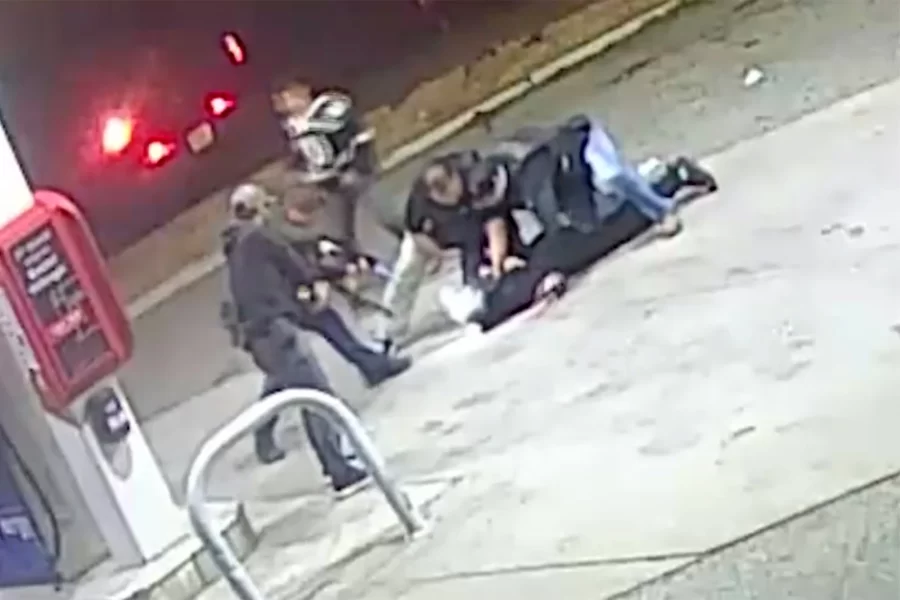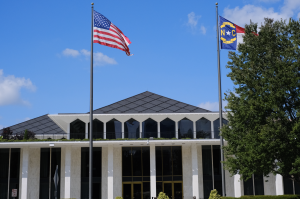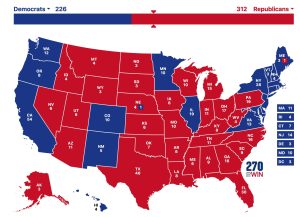Shootings of houseless men highlight legislative issues
Reforming homeless shelters and firearm regulations is essential in the wake of these crimes
Police arrest the man suspected of killing multiple houseless men.
March 23, 2022
On Tuesday, March 15, Gerald Brevard III was arrested for a series of attacks targeting men who were experiencing houselessness in New York City and Washington, D.C. Brevard’s crimes resulted in the hospitalization of five victims, with two dying from their injuries. These horrific acts of violence targeted at one of the most vulnerable populations in the United States disturbed and jolted the public awake. They stand as a solemn reminder of the drastic need for the reform of homeless shelters and policies regarding these marginalized individuals.
Brevard approached and shot the victims in the early hours of the morning, as they lay asleep on city sidewalks. Surveillance footage captured these crimes and was instrumental in aiding in his arrest. However, authorities were unable to locate Brevard until his travel to New York City, where he continued his assault on those experiencing houselessness.
The brutality of Brevard’s attacks on unarmed, peaceful men was jarring and extreme, and they depicted the dangers houseless populations face throughout the country. As this story unfolded in the public eye, attention was drawn to the limitations of the current efforts to address houselessness and actions the government could take to give those who cannot afford a living space the safety they rightfully deserve.
One of the institutional inefficiencies called into question by these crimes was the efficacy of homeless shelters in major cities. While many believe homeless shelters to be an acceptable solution to the houselessness crisis, this rudimentary viewpoint only touches the tip of the iceberg and fails to address the issues plaguing the houseless population both in and outside of shelters.
Homeless shelters in the United States are notoriously overcrowded and do not have an adequate amount of space to accommodate those experiencing houselessness. The houselessness crisis has worsened over recent years, with the rate of houselessness reaching 17 people per every 10,000 in the general population, according to the National Alliance to End Homelessness. Shelters have not expanded to parallel this growth in demand. Furthermore, violence and crime within shelters make them unappealing options for those in need. Incidents of domestic violence, sexual assault and drug-related offenses are common in shelters and serve as preventative factors for those seeking a residence.
Not only are shelters often centers of violence and unrest, but they also lack comprehensive mental health and addiction services that many people experiencing houselessness require to overcome the circumstances and adversity they face. Therefore, rather than acting as rehabilitating safe havens for the houseless, shelters represent a concentration of the violence and lack of opportunity that these individuals have been forced to navigate on a daily basis.
While Brevard’s murders generated conversation surrounding the problems associated with shelters, they also sparked outrage regarding gun laws and firearm regulations. Having a plethora of previous charges and even previous arrests — including assault and robbery — Brevard was no stranger to the legal repercussions associated with his crimes. Yet, Brevard could maintain his access to a firearm and could use this weapon to end the lives of his innocent victims. Logically, this elicited outcry among gun reform advocates and concerned citizens alike, who questioned how someone who has clearly and undeniably expressed violent tendencies was able to purchase a gun with ease.
Although the concerns raised by these murders may hopefully pave the road toward stronger protections for individuals experiencing houselessness, the two lives lost and damage inflicted due to these senseless acts of violence cannot be undone. While a breath of relief was exhaled across the country as news outlets announced that Brevard had been apprehended, the pain of his crimes lingered like a dense fog.
In the wake of this tragedy, citizens must continue to advocate for resources to address the houselessness crisis and must honor the victims by securing legislation to ensure that these callous acts of violence never happen again.













